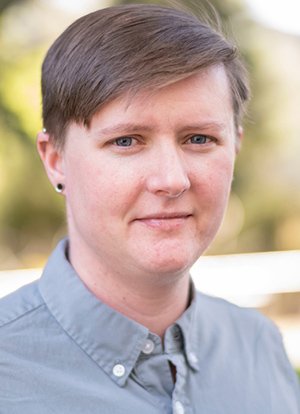An Urgent Call for Recognition and Support of Trans Scientists in Academia

Associate Professor of Engineering Maggie Delano recently co-authored a paper outlining how institutions can better support transgender scientists. Published in Cell’s special issue on sex and gender, “Rigorous science demands support of transgender scientists” highlights the challenges that sex and gender minorities face in the fields of science, technology, engineering, mathematics, and medicine (STEMM) and advocates for systemic changes to support transgender people in scientific communities.
The paper aims to shift the academic landscape, promoting a culture where trans and queer identities are acknowledged, respected, and supported.
With contributions from 24 authors, each of whom identifies as transgender or has transgender family members, the paper offers an analysis of the oppression of transgender people and its impact on scientific research. It emphasizes the value of creating equitable, diverse institutions, and suggests actionable measures for individuals and institutions to acknowledge and address the unique needs of transgender scientists, as well as improve inclusivity.
To foster trans inclusivity, individuals are encouraged to educate themselves about the trans community's challenges, respect the names and pronouns of their colleagues, and use gender-inclusive language. Academics can incorporate trans and queer studies into their curricula.
Institutions are urged to address systemic barriers encountered by sex and gender minorities. The paper recommends developing policies to promote trans inclusivity, accomodate challenges that trans people face, and improve health care benefits. It also advises that institutions adopt trans-inclusive policies in fieldwork, create gender-inclusive facilities in research spaces, avoid endorsing exclusionary perspectives, and give precedence to platforming gender minorities.
The paper serves as a reference point for people looking to advocate for inclusivity within their STEMM communities. Delano, who teaches an Inclusive Engineering Design course, says that while writing the paper they sought to connect issues impacting trans people and scientists today with the liberation movements of other marginalized peoples.


